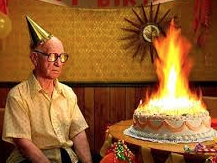- ‘Lies, damned lies etc…’ - 13th February 2026
- Missing in action - 12th February 2026
- Travel news again - 11th February 2026

During 23 years with the BBC, and 40 years in journalism (when he was trained to use simple language, avoiding jargon), voter apathy has always been a major concern, and sadly featured in many of his stories.
This is underlined now by figures revealed after last week’s key political elections.
The term ‘voter apathy’ is a cliché but no less true for that.

The local elections and by-election in England have been hailed as “historic” and votes for the Police and Crime Commissioners (PCCs) in Wales as “important”, yet few have latched on to an overriding reality: NOBODY REALLY CARED!
For instance, in the PCC ballot for Gwent 17 out of 20 voters didn’t bother to vote AT ALL…
The background to a “seismic” victory for Labour (L) in Blackpool South is intriguing, and needs to be explored.
Sir Keir Starmer said that it was “truly historic and shows that we are firmly back in the service of working people”.
But the facts paint a slightly different picture.

This “seismic” victory came with a voter turnout of just 32.5 per cent, and to put that in context it was 56.8 per cent at the last General Election (GE).
For a nearby local authority election (Bristol) in the Avonmouth and Lawrence Weston ward it was even worse – 26 per cent.


It was always feared the latest figures for voter turnout might be this way.
Across England only about a third of voters were expected to cast a ballot in the local elections.
That may have fallen as low as 13 per cent in the most deprived parts of places such as Middlesbrough and Hull.
These sort of figures call into question whether there is actually a mandate to make the crucial decisions which will affect people’s lives, and they have been just as bad in years gone by, with most local authority councillors being returned unopposed.

In Tilbury eight out of 10 voters stayed at home at last year’s local elections.
In elections to parliaments in continental Europe, though, it is MUCH better.
Even the greatly derided elections to the European Parliament (which became a by-word for apathy), now seem to have caught the imagination of voters – particularly the young.
Voter participation fell at every one of its five-yearly elections, from 62 per cent in 1979 to 42.5 per cent in 2014.

That all changed in 2019, with turnout bouncing back to 50.6 per cent.
According to a Eurobarometer survey, much of the surge came from young voters: the participation of under-25s rose by 14 percentage points compared with 2014, and by 12 percentage points among 25 to 39-year-olds.
But it is of little consolation to know that our continental cousins are doing well, when we are doing so badly…

Details including political stories like these by Phil, as he was gripped by the rare neurological condition Hereditary Spastic Paraplegia (HSP), have been released in a major book ‘A GOOD STORY’. Order it now!
Regrettably publication of another book, however, was refused, because it was to have included names.

Tomorrow – Phil looks at why the label ‘BREAKING NEWS’ should only be employed rarely, but last week’s election results revealed a cascade of meaningless uses of the term, including Rishi Sunak being urged to ‘own’ the terrible news.









